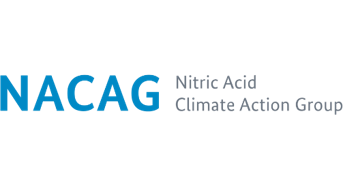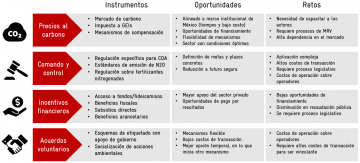In order to contribute to climate change goals, the Nitric Acid Climate Action Group (NACAG) initiative assists Mexico and 30 other governments around the world in generating a regulatory framework to reduce nitrous oxide (N2O) emissions caused by the manufacturing process of nitric acid.

While nitric acid is an important product for the chemical industry, since it is primarily used for the production of fertilizers, its manufacturing process emits N2O, a greenhouse gas with a global warming potential 265 times greater than carbon dioxide (CO2). In Mexico, the sector has an annual mitigation potential of approximately 515,000 tCO2e, emitted by 3 facilities, and representing 6.5% of the national target for reducing industrial emissions by 2030.
In order to promote the production of low emission nitric acid, the NACAG initiative provides technical advice and financial support for the installation of abatement technology in nitric acid plants. Financing is also offered for the installation of emission monitoring technology, thus strengthening the national GHG emissions inventory; as well as for hiring and training of personnel in charge of technology.

In order to advise the Mexican government, thetechnical team of NACAG has carried out a study evaluating the options of legal instruments that affirm, in the long term, the reduction of N2O emissions in the sector. A catalog of various policy mechanisms (regulatory, fiscal, market and voluntary) that allow continuity to the commitments that Mexico would assume when joining the initiative was identified. In addition, as a result of a consultation process with key actors in the public and private sector, a roadmap was developed considering different implementation scenarios.

In this regard, the current situation on the start of the pilot program of the Emissions Trading System (ETS) represents an opportunity to regulate the emissions of the nitric acid sector through existing institutional frameworks and at low transaction costs. It is proposed to take benefit from the current institutional framework around the ETS , integrating nitric acid sector reductions as an additional sector in the compensation program. In this way, the continuous mitigation of N2O is encouraged, allowing nitric acid producers to generate compensation credits.
The evaluation of different sectors to be considered in the compensation program, coordinated jointly by SEMARNAT and GIZ, has identified several preliminary advantages of the sector, such as optimal market conditions, a robust legal framework, and the cost-effectiveness of mitigation. Likewise, the Technical Secretariat of NACAG has begun to develop a protocol for the management of reductions that will be presented to the member countries and will be modified according to their national needs. This protocol will serve as a support to the Mexican government during the design of methodologies for the proper functioning of the compensation program.
The NACAG initiative is a project funded by the German Federal Ministry for the Environment, Nature Conservation and Nuclear Safety (BMU).
